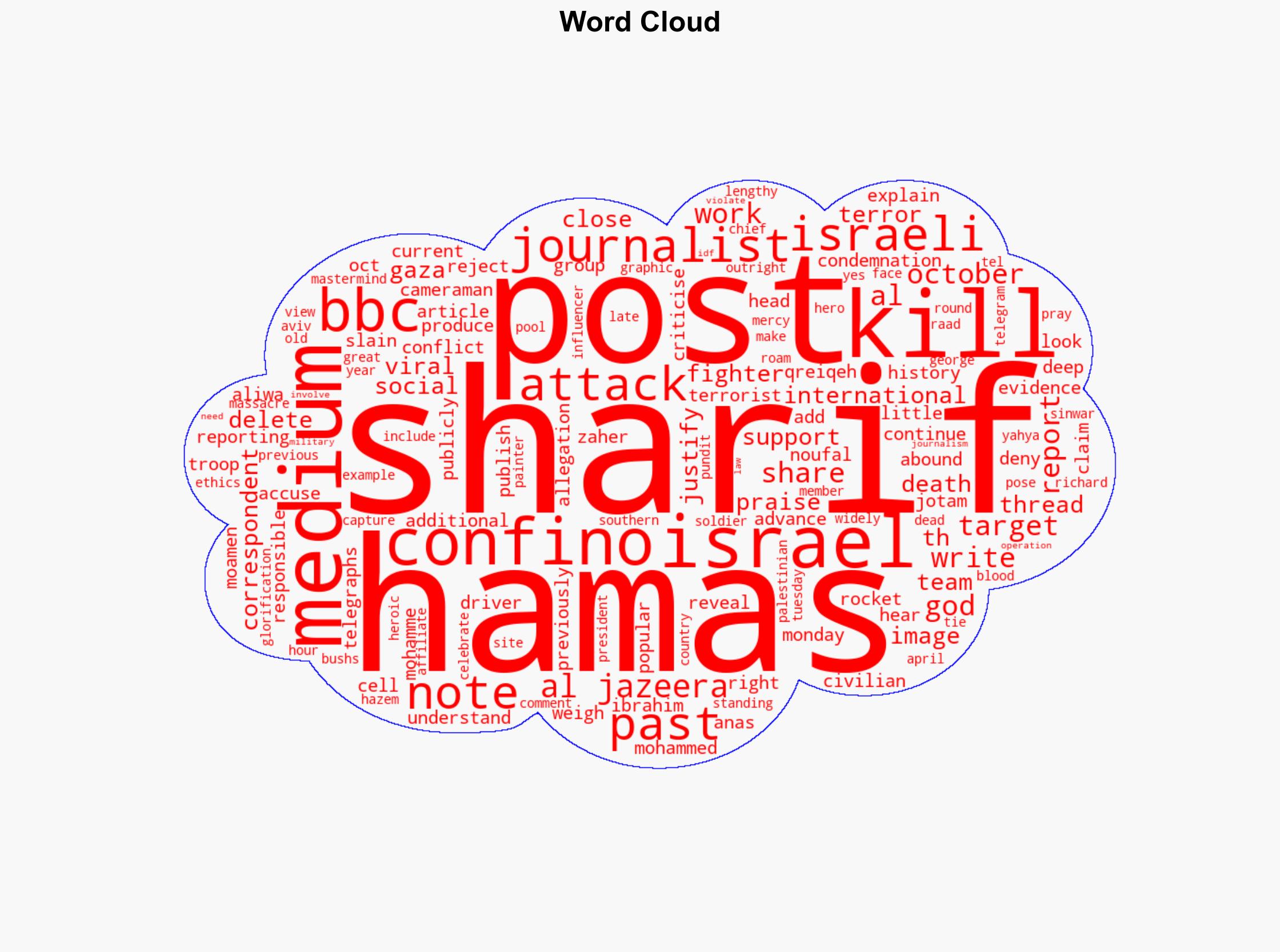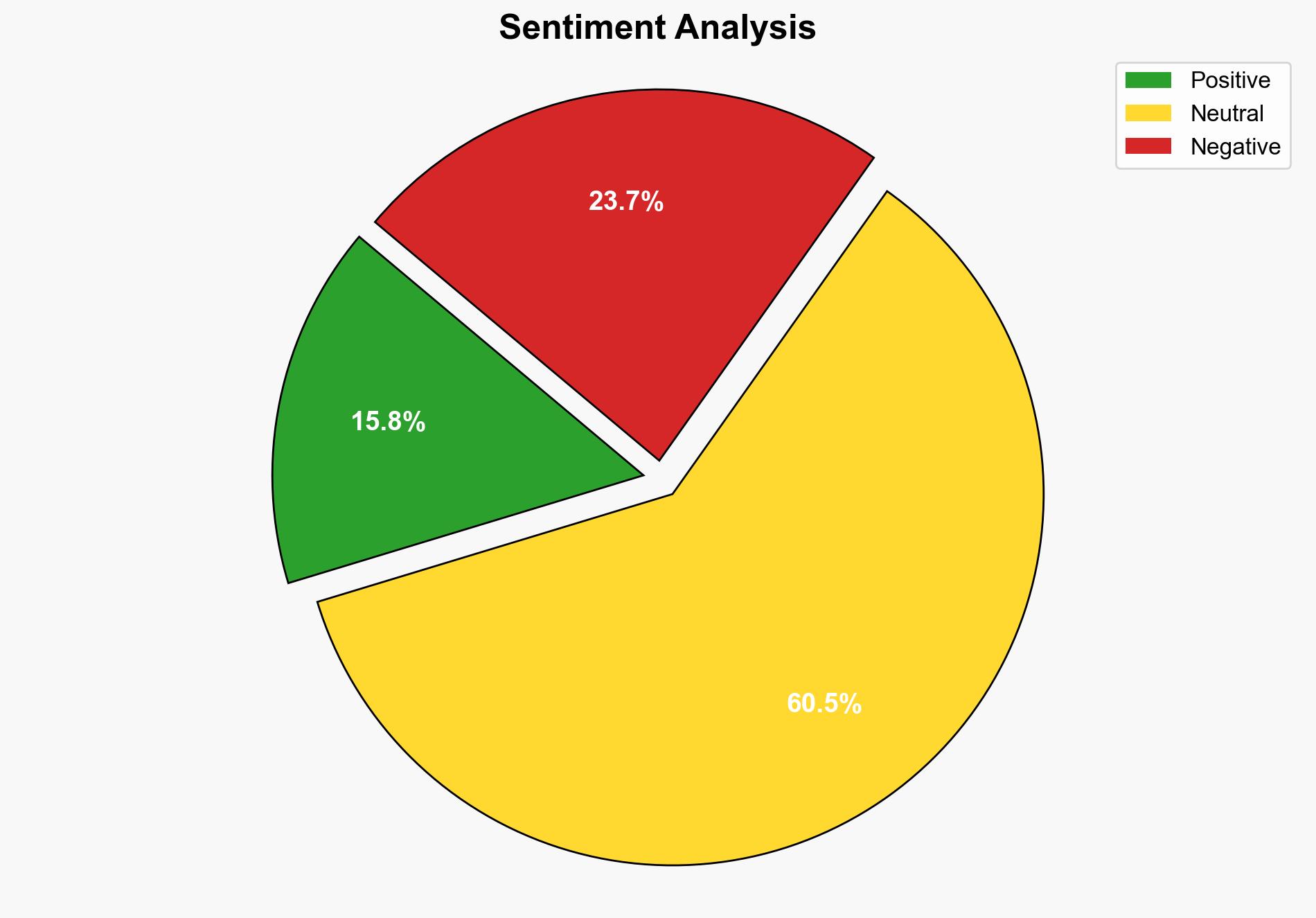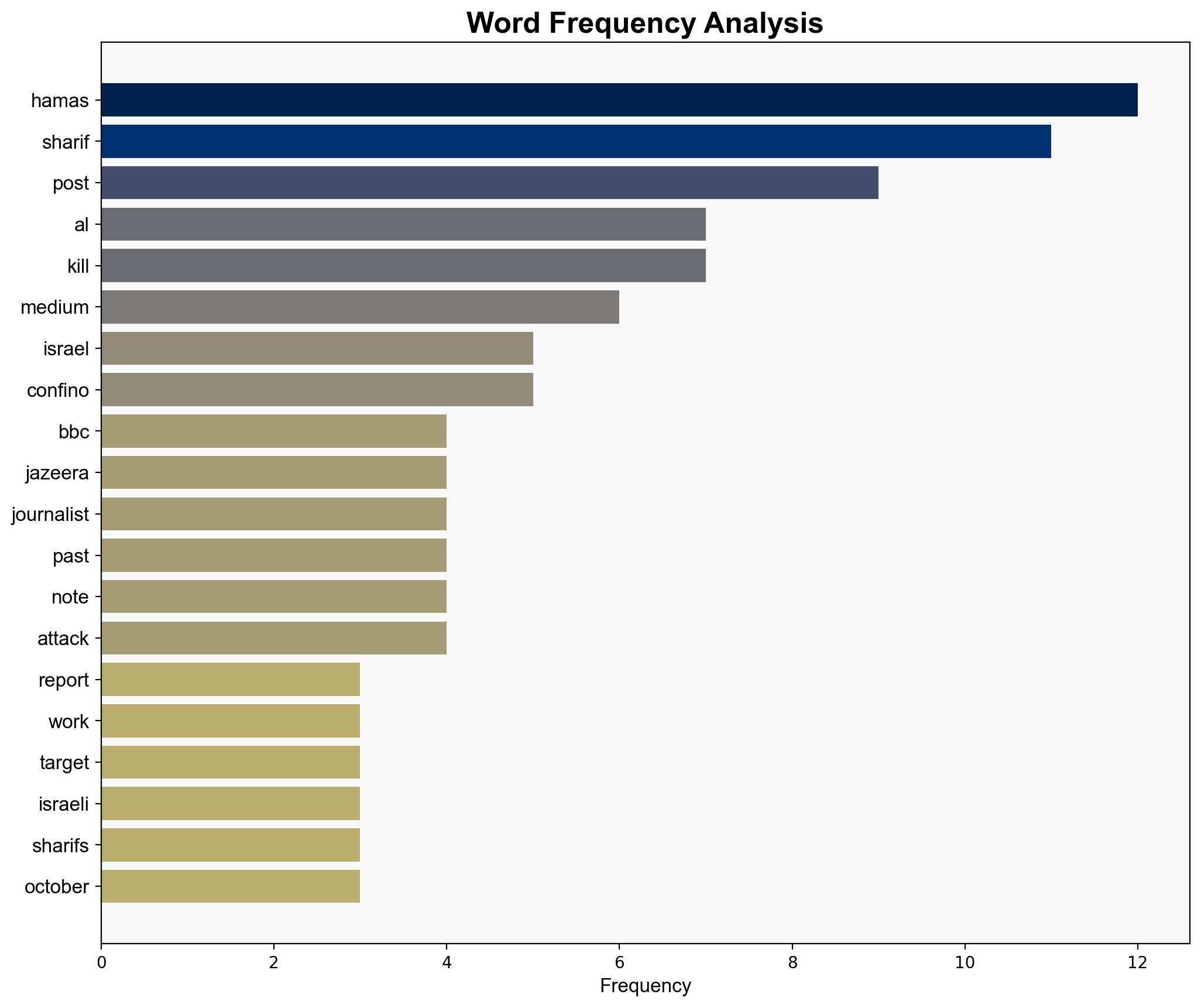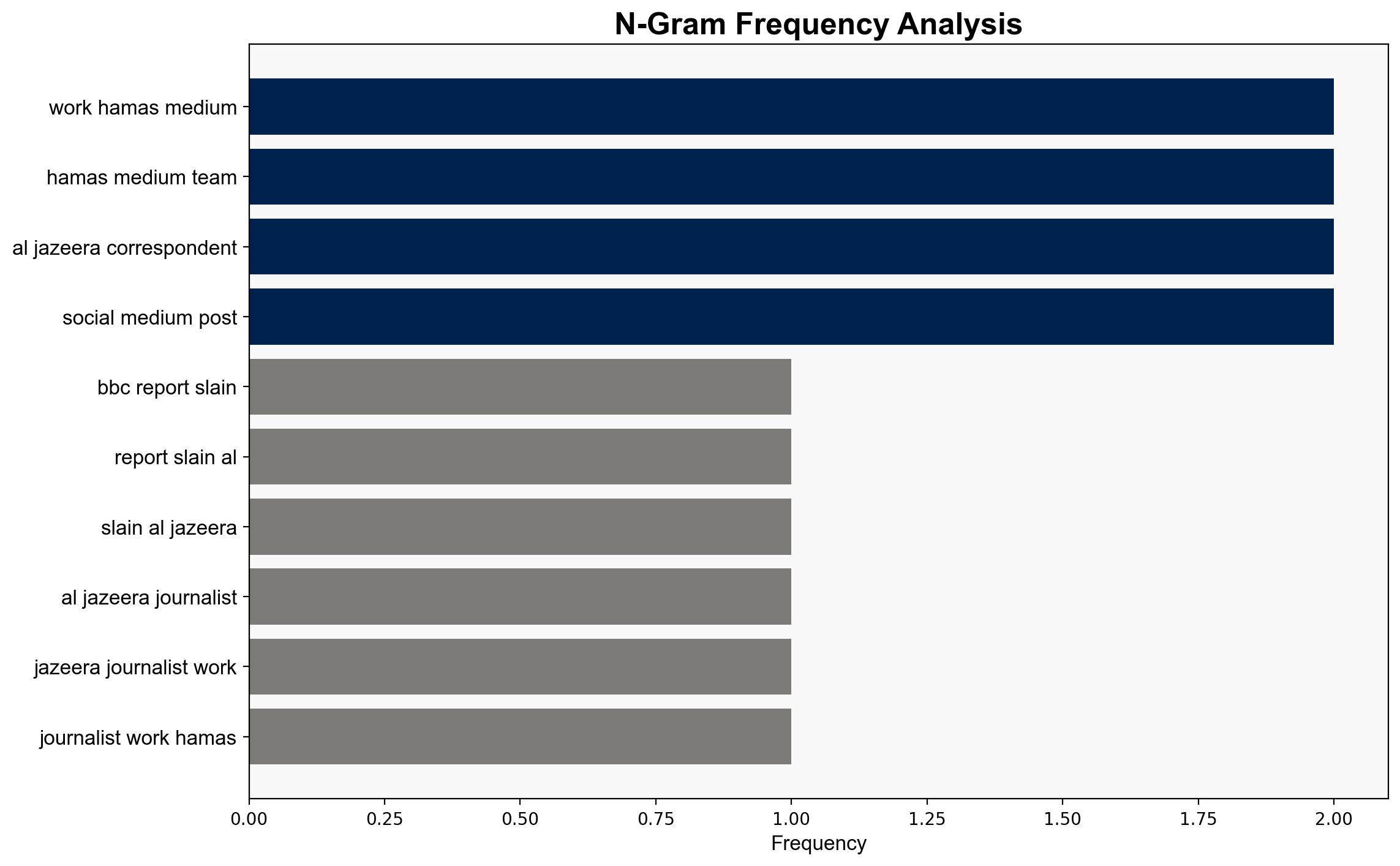BBC Reports Slain Al Jazeera Journalist Once Worked For a Hamas Media Team As His Past Praise of Oct 7 Goes Viral – Mediaite
Published on: 2025-08-12
Intelligence Report: BBC Reports Slain Al Jazeera Journalist Once Worked For a Hamas Media Team As His Past Praise of Oct 7 Goes Viral – Mediaite
1. BLUF (Bottom Line Up Front)
The most supported hypothesis is that the slain journalist, Anas al-Sharif, had affiliations with Hamas, which may have influenced his reporting and social media activity. This is based on evidence of his past work with a Hamas media team and social media posts praising Hamas activities. Confidence level: Moderate. Recommended action: Monitor media narratives and social media for further evidence of journalist affiliations with militant groups, and assess the impact on regional media credibility.
2. Competing Hypotheses
1. **Hypothesis A**: Anas al-Sharif was affiliated with Hamas, and his reporting was influenced by this connection. This is supported by evidence of his past work with a Hamas media team and social media posts praising Hamas activities.
2. **Hypothesis B**: Anas al-Sharif was an independent journalist whose past social media activity was personal and not indicative of professional bias. The allegations of his Hamas affiliation are part of a broader narrative to discredit journalists in conflict zones.
Using the Analysis of Competing Hypotheses (ACH) 2.0, Hypothesis A is better supported due to the documented evidence of past affiliations and social media activity. Hypothesis B lacks substantial evidence to counter these claims.
3. Key Assumptions and Red Flags
– **Assumptions**: It is assumed that social media posts are a reliable indicator of personal and professional affiliations. It is also assumed that the BBC report is accurate and unbiased.
– **Red Flags**: The lack of concrete evidence from Israeli authorities to support their claims against al-Sharif raises questions. Additionally, the potential for social media posts to be taken out of context or manipulated is a concern.
– **Blind Spots**: The broader geopolitical context and potential biases in reporting from all parties involved are not fully explored.
4. Implications and Strategic Risks
The situation could escalate tensions between media organizations and governments in conflict zones, potentially leading to increased targeting of journalists. There is a risk of undermining the credibility of media outlets perceived to have affiliations with militant groups. This could also affect international perceptions and diplomatic relations in the region.
5. Recommendations and Outlook
- Conduct a thorough investigation into the affiliations of journalists operating in conflict zones to ensure unbiased reporting.
- Enhance monitoring of social media for signs of manipulation or misinformation campaigns.
- Scenario-based projections:
- Best: Increased transparency and accountability in media reporting lead to improved trust and reduced tensions.
- Worst: Escalation of violence against journalists and further erosion of media credibility.
- Most Likely: Continued scrutiny of journalists’ affiliations with ongoing debates over media bias and safety.
6. Key Individuals and Entities
– Anas al-Sharif
– Yahya Sinwar
– Raad Hazem
– Mohammed Qreiqeh
– Ibrahim Zaher
– Moamen Aliwa
– Mohammed Noufal
– Jotam Confino
– Richard Painter
7. Thematic Tags
national security threats, cybersecurity, counter-terrorism, regional focus




